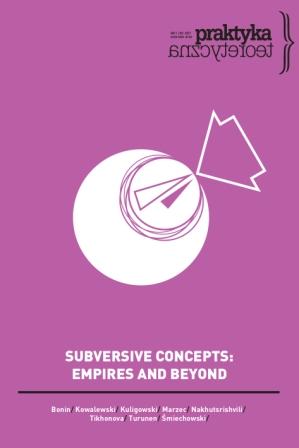The Transfigurations of Spacetime: The Concept of Tabor in the Hussite Revolution and its Implications for Philosophy of History
The Transfigurations of Spacetime: The Concept of Tabor in the Hussite Revolution and its Implications for Philosophy of History
Author(s): Jakub KowalewskiSubject(s): Christian Theology and Religion, Political history, Middle Ages, Early Modern Philosophy, Philosophy of Religion, Politics and religion, History of Religion, Philosophy of History
Published by: Uniwersytet Adama Mickiewicza
Keywords: apocalypticism; heresy; Hussite revolution; ideology; medieval communism; philosophy of history; political theology; space; time;
Summary/Abstract: In this paper, I aim to show how medieval political theology and contemporary philosophy of history can inform one another. To do so, I examine the concept of Tabor–a notion which emerges among the radical Hussites, known as the Taborites, during the Hussite revolution in medieval Bohemia. I believe that the politico-theological concept of Tabor puts into question modern philosophies which think of history in terms of time, by clearly showing the insufficiency of a purely temporal approach to historical ideas and experiences. To successfully articulate the Taborite concept, we must understand history as structured not only by time but also by space and ideology. Conversely, a historical study guided by the philosophical categories of ideology, space, and time can expand our understanding of Hussite political theology by revealing notions and experiences which cannot be identified by an exclusively ideological, or solely spatial or temporal, analysis.
Journal: Praktyka teoretyczna
- Issue Year: 2021
- Issue No: 39
- Page Range: 161-168
- Page Count: 26
- Language: English

